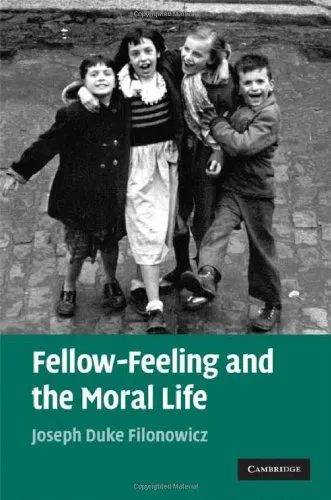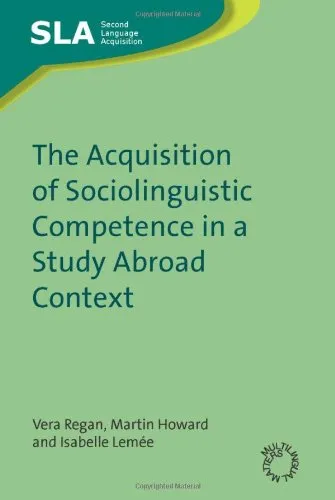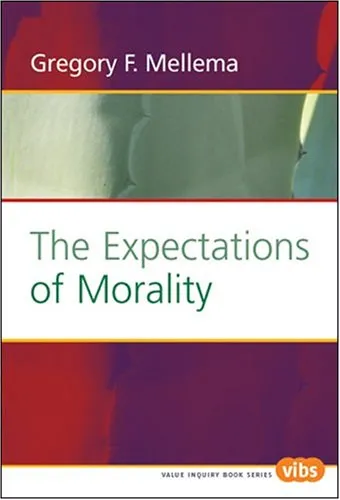Fellow-Feeling and the Moral Life
4.6
Reviews from our users

You Can Ask your questions from this book's AI after Login
Each download or ask from book AI costs 2 points. To earn more free points, please visit the Points Guide Page and complete some valuable actions.Related Refrences:
Introduction to "Fellow-Feeling and the Moral Life"
Welcome to the philosophical exploration of empathy, ethics, and human connectedness in "Fellow-Feeling and the Moral Life." Authored by Joseph Duke Filonowicz, this book delves into the ethical dimensions of human emotions, particularly the role of fellow-feeling—often equated with empathy or sympathy—in shaping moral decisions and sustaining a meaningful life. It stands as a thoughtful contribution to the ongoing discourse on morality, posing profound questions about the interplay between emotional resonance and ethical reasoning in our personal and collective engagements.
Rooted in the traditions of both contemporary moral philosophy and classical ethical thought, "Fellow-Feeling and the Moral Life" invites readers to reflect on how shared emotional experiences can influence moral growth and cultivate deeper understanding among individuals. This book seeks to untangle the complexities of ethical living in a world often characterized by diversity, conflict, and individualism. Through accessible prose and incisive arguments, the text invigorates timeless ethical debates while offering fresh insights into the modern moral landscape.
Detailed Summary of the Book
"Fellow-Feeling and the Moral Life" unfolds around the central idea that human emotions, such as empathy and sympathy, are foundational to moral reasoning and ethical behavior. It explores how these emotional capacities allow individuals to "feel with" others, fostering bonds of solidarity that extend across cultural and social divides.
The book is divided into several sections, each tackling a different dimension of the relationship between fellow-feeling and morality. The early chapters aim to define fellow-feeling, distinguishing it from mere emotional contagion. Drawing upon philosophical traditions from thinkers such as David Hume, Adam Smith, and contemporary moral theorists, the text argues that empathy is not merely an instinctive reaction but a deliberative act that contributes to moral agency.
In the middle sections, the book ventures into practical realms, examining real-world challenges where empathy—rightly understood—can influence moral outcomes. These include social justice issues, global crises, and personal relationships. By engaging with these scenarios, the book highlights how fellow-feeling can lead to concrete actions, helping individuals and communities navigate ethical dilemmas in a complex world.
Toward the end, Filonowicz situates fellow-feeling within the broader scope of human flourishing, positing that an empathetic approach to life is not only morally commendable but also essential for individual well-being. Through its nuanced analysis, "Fellow-Feeling and the Moral Life" emerges as both an inquiry into what it means to live morally and a call for readers to deepen their ethical commitments through genuine emotional engagement.
Key Takeaways
Here are some of the most significant insights from the book:
- Fellow-feeling, or the capacity to empathize with others, is a cornerstone of ethical life and moral reasoning.
- Moral decisions are not purely rational—they are deeply intertwined with our emotional connections to other people.
- Empathy is not only instinctive but can also be cultivated through intentional practices such as active listening and perspective-taking.
- The absence of genuine fellow-feeling can lead to moral insensitivity and social fragmentation.
- Ethical living requires balancing rational principles with emotional engagement, creating a more compassionate and just society.
Famous Quotes from the Book
Some memorable lines from "Fellow-Feeling and the Moral Life" include:
"To feel with others is not a passive act but an active participation in their world—an act that transforms both the one who feels and the one who is felt for."
"Empathy is not merely a gift we offer; it is a commitment we make to the shared human condition."
"In the absence of fellow-feeling, morality loses its warmth, and ethics turns into cold calculus."
Why This Book Matters
"Fellow-Feeling and the Moral Life" is essential reading for anyone seeking to understand the ethical complexities of modern society. At a time when polarization, apathy, and alienation seem pervasive, this book reminds us of the transformative power of empathy and emotional connection. It challenges readers to consider how emotions, far from being irrational or secondary, are pivotal in crafting a more humane and equitable world.
Beyond its scholarly contributions, the book's accessible tone and relatable examples make it an invaluable resource for students, educators, and general readers alike. Whether you're a seasoned ethicist or someone grappling with everyday moral questions, "Fellow-Feeling and the Moral Life" provides fresh perspectives that will resonate long after the final page.
Free Direct Download
You Can Download this book after Login
Accessing books through legal platforms and public libraries not only supports the rights of authors and publishers but also contributes to the sustainability of reading culture. Before downloading, please take a moment to consider these options.
Find this book on other platforms:
WorldCat helps you find books in libraries worldwide.
See ratings, reviews, and discussions on Goodreads.
Find and buy rare or used books on AbeBooks.
1338
بازدید4.6
امتیاز0
نظر98%
رضایتReviews:
4.6
Based on 0 users review
Questions & Answers
Ask questions about this book or help others by answering
No questions yet. Be the first to ask!














